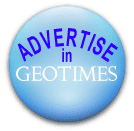|
DOWN TO EARTH WITH...: News about people from AGI and its 44 member societies
Archive of past profiles stories by date
Five New Congressional Science Fellows
This year’s five geoscience congressional science fellows are bringing a broad range of experience and background to Capitol Hill, serving as staffers for senators, representatives and committees. Although they come from diverse fields, they share similar goals: to learn how science and policy can work together, and how to fit their own expertise into the bigger picture of national policymaking.
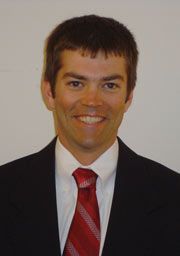 Michelle Apotsos |
Alex Apotsos Background: Apotsos completed his doctoral degree in applied ocean science and engineering from the MIT/Woods Hole Oceanographic Institution’s Joint Program in Oceanography last May. He also took policy courses while in graduate school. Policy experience: After finishing his undergraduate degree in civil and environmental engineering, Apotsos entered the Peace Corps, spending two years in Mali as a water and sanitation engineer. “That really opened my eyes to how badly poor policies can affect peoples’ lives,” he says. On the Hill: Apotsos will be working in Sen. Jon Tester’s (D-Mont.) office on environmental, energy and water resources issues, including how to deal with Superfund sites such as old mines that are filling up with groundwater. |
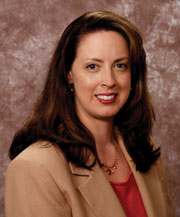 Geological Society of America |
Maria Honeycutt Background: Between earning her master’s and doctoral degrees in oceanography at the University of Delaware, Honeycutt spent a year as a Knauss National SeaGrant Marine Policy Fellow, working on coastal erosion and hazard mitigation issues at Federal Emergency Management Agency (FEMA) headquarters in Washington, D.C. Policy experience: While still in graduate school, Honeycutt took a consulting job with a FEMA contractor to help create an erosion hazard mapping program under the National Flood Insurance Program. “It’s the job I wanted when I got out anyway,” she says. From there, she moved to another FEMA contractor and has been working on hurricane recovery issues for the past two years. On the Hill: Honeycutt will be working in Sen. Bill Nelson’s (D-Fla.) office on a range of issues involving FEMA, the flood insurance program, coastal erosion and climate change. |
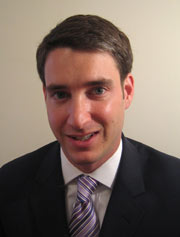 Brookings Institution |
Bryan Mignone Background: While earning an undergraduate degree in physics, Mignone also took a year off to study environmental policy in Washington, D.C. When applying to graduate schools, he chose to study climate science at Princeton University in New Jersey, because it offers both a strong geosciences program and a well-known policy school, he says. Policy experience: Since earning his doctoral degree in 2006, Mignone has been at the Washington, D.C., think tank The Brookings Institution, working on climate, energy and technology policy issues — and also writing op-ed pieces to explain those issues to a broader audience. On the Hill: Mignone will be working with the Senate Committee on Energy and Natural Resources on climate and energy issues. |
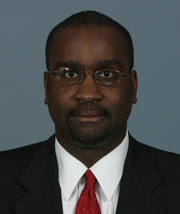 Courtesy of Michael Morgan |
Michael Morgan Background: Currently a full professor on sabbatical from the University of Wisconsin at Madison’s Department of Atmospheric and Oceanic Sciences, Morgan says his two passions since middle school have been atmospheric sciences and politics. After completing an undergraduate degree in mathematics, he earned his doctoral degree in meteorology from MIT in 1994. His research background has focused largely on atmospheric predictability, he says. Policy experience: None to speak of, but “I’ve been a political news junkie for years,” Morgan says. “I want to be a human sponge over the next year.” He plans to bring back what he learns about the intersection of science and policy to his students — but may even consider running for elected office at some point in the future. On the Hill: Morgan will be working in Sen. Ben Cardin’s (D-Md.) office. He hopes to get exposure to a broad range of issues, including energy, climate change, NASA and homeland security. |
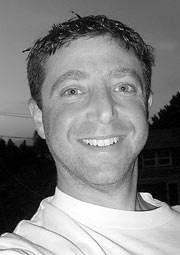 Benjamin Gutman |
Benjamin Gutman Background: Gutman earned his doctoral degree in plant biology from the University of California at Berkeley last May, studying DNA repair in plant chloroplasts. As an undergraduate, he studied both biology and art. Policy experience: Gutman says he has no direct policy experience, but that writing for Berkeley’s campus paper about science gave him a perspective on “the bigger picture, where the applications are, where the funding comes in and what the priorities are.” On the Hill: He’ll be working in Rep. Doris Matsui’s (D-Calif.) office, likely on issues related to transportation and infrastructure, especially the environmental and agricultural impacts of levees and waterways. |
Recently, the new fellows talked with Geotimes reporter Carolyn Gramling about their backgrounds and their expectations for their year on the Hill.
CG: What do you think are some of the challenges you, as scientists, might face as transplants in the world of politics?
Apotsos: One concern is, do you lose your scientific credentials? People may see you as an advocate, not a scientist, so the question is how to keep that balance and maintain the objectivity of science while still trying to use that to influence policy. It’s walking a fine line. … However, I think there’s a lot of push in the scientific community to begin overlapping science and policy.
Honeycutt: That’s part of the challenge for the year: to understand that line between providing information and providing a recommendation for action, but not necessarily being an advocate for any one position. There are shades of gray in there, but we’ve got to try and find that balance.
Gutman: I think there’s considerable disconnect between scientists, the general public and the policymaking world that funds them and uses their science at some level. I’m not going to cure that disconnect [this year], but I have an interest in how science fits with society more broadly.
CG: What are some of the hot issues swirling around the Hill this year?
Mignone: The energy bill is still trying to go through conference. I definitely think there’s more momentum on climate than there ever has been, but it’s not clear what’s going to happen. You’ve got the Lieberman-Warner bill about to go through the committee, but it will still depend a lot on what the bill actually looks like. There are a lot of converging factors now; industry has faced a patchwork of state regulations for a long time, and now a lot of energy companies are coming out in favor of national legislation so they don’t have to deal with that.
Honeycutt: I’ve been working on the National Flood Insurance Program, and one of the things we’ve been pushing regarding hurricanes, for example, is to look at future conditions, which in the context of coastal issues means erosion. That’s something that we could never get anybody to pay attention to were it not for a new level of understanding about climate change. After [Hurricane] Katrina, we saw some progress, but we weren’t to the level of understanding we’re at now with climate change.
CG: What are you most hoping to get out of this experience?
Gutman: I don’t know at this point — it seems very different and new and exciting, and a way to make a bigger difference, to have more of an impact. It’s a very different perspective from being in the lab and working on a very small, specific area. At the primary level, I hope this will be a learning experience: how policy happens, what goes on in government, whether I want to continue in this type of field. Even if I don’t want to, I’ll have that knowledge to bring back to science.
Apotsos: I didn’t come in for a certain issue; I came in to learn about the process. I want to learn as much as I can about how policy is made, about how our government works. To me, the biggest thing is to see how science is weighed against different factors such as economics, cultural, political, social issues. And to try to be able to figure out when science can help, and when it can’t. There are going to be times when the other issues are just going to trump science — I think sometimes scientists forget that.
Honeycutt: It’s one thing to intellectually understand that science is one of many factors, but it’s another thing entirely to see someone actually make that decision and weigh those different factors. I’m hoping to get out of this an understanding of how to break up a solution into incremental steps or multiple approaches to try to get to that same conclusion; for example, when the science says, “Do ‘X,’” but politically, ‘X’ is not going to happen — well, what’s another thing that we could do in the near term that isn’t ‘X’ but is still on that path?
Morgan: One of my hopes is to incorporate what I learn about how policy is actually used into a course for graduate students, where they would learn about how science and policy intersect in D.C. The main thing I’m looking forward to is being immersed in policy development. I want to learn as much as I can about a number of issues, not just related to my research but to my curiosity about the world in general outside the science realm.

 Subscribe
Subscribe

